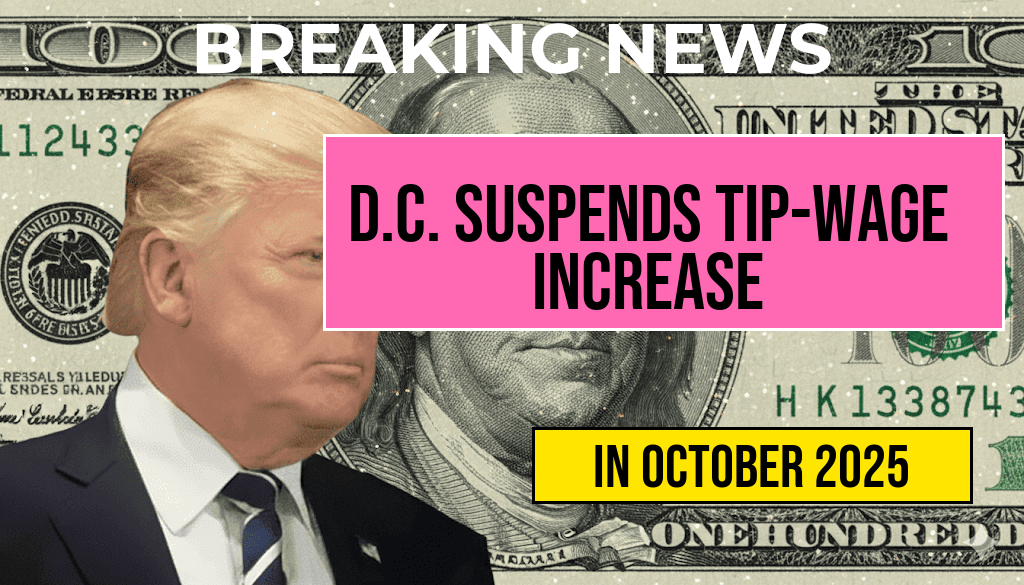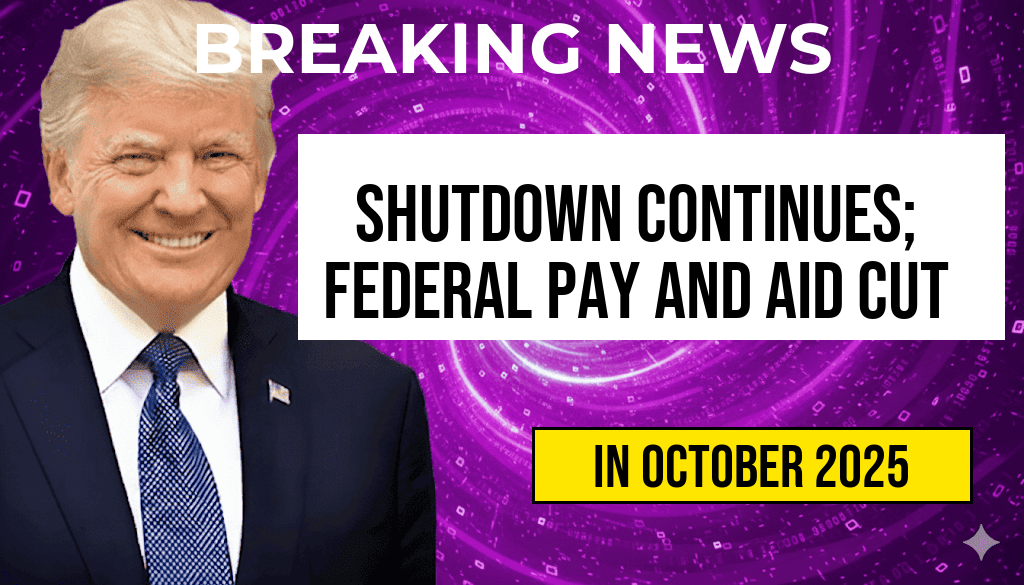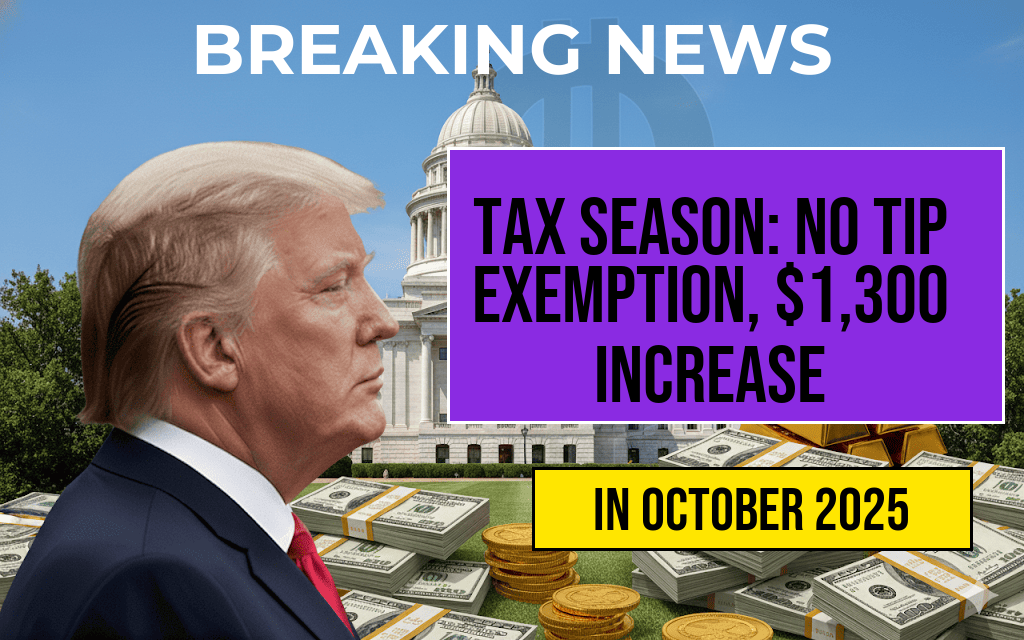The District of Columbia has announced the suspension of a scheduled $2 tipping-wage increase initially set to take effect this year, a move that could result in servers losing an estimated $4,160 annually compared to the original plan. The decision has sparked debate among restaurant industry stakeholders, workers, and policymakers, raising questions about the economic impacts of wage adjustments amid ongoing discussions about minimum wage policies and labor protections in the city.
Background on the Tipped-Wage Policy in D.C.
District officials had previously approved a phased increase in the tipped minimum wage as part of broader efforts to elevate wages for service industry employees. Under the original schedule, the tipped wage was to rise incrementally over several years, reaching parity with the regular minimum wage. This policy aimed to address longstanding disparities faced by tipped workers, who often depend heavily on gratuities, and to ensure fair compensation in a city where the cost of living continues to climb.
Details of the Suspension and Its Financial Impact
According to recent announcements from the D.C. Department of Employment Services, the scheduled $2 wage increase—which was slated for implementation in July—has been temporarily halted. Officials cited economic uncertainties and the need for further stakeholder consultation as primary reasons for the suspension. For servers and tipped workers, this decision could mean a significant reduction in anticipated earnings, with estimates suggesting an average annual loss of $4,160 in wages compared to the original plan.
Projected Earnings Difference for Servers
| Wage Scenario | Annual Income | Difference |
|---|---|---|
| Original Wage Increase Plan | $30,000 | – |
| Suspended Increase (No raise) | $25,840 | $4,160 |
The table illustrates how the suspension alters potential earnings, emphasizing the financial stakes for workers relying on tips as a significant part of their income.
Implications for Workers and Industry Stakeholders
Many servers and tipped employees in D.C. have expressed concern over the decision, fearing it may undermine efforts to reduce wage disparities. “This pause feels like a setback after years of advocacy for fair wages,” said Maria Lopez, a bartender with over a decade of experience in the city. Conversely, some restaurant owners have welcomed the delay, citing economic pressures and the impact of inflation on operating costs.
Economic and Social Considerations
- Worker Income Stability: Tipped workers often rely heavily on gratuities, which can fluctuate based on business volume and customer tipping habits. A wage increase provides a baseline income, reducing financial insecurity during slow periods.
- Restaurant Profit Margins: Employers argue that rising wages could strain profit margins, potentially leading to higher menu prices or reduced staffing levels.
- Broader Policy Debates: The move fuels ongoing discussions about the balance between supporting workers and maintaining economic competitiveness in the hospitality sector.
Legal and Political Context
The suspension aligns with broader political debates over minimum wage adjustments across various jurisdictions. Lawmakers and advocacy groups have called for a careful approach to wage policy, emphasizing the importance of considering economic conditions and industry feedback. Meanwhile, opponents argue that delaying wage increases perpetuates income inequality and fails to address systemic disparities faced by tipped workers.
Relevant Legislative Developments
Earlier this year, the D.C. Council introduced bills aimed at gradually eliminating the tipped wage system, proposing a move toward a single minimum wage for all workers. Critics of the suspension contend that further delays could undermine these legislative efforts, complicating future wage reforms.
Expert Perspectives and Future Outlook
Economists and labor advocates suggest that the decision reflects the city’s ongoing struggle to balance economic resilience with fair labor standards. Dr. Emily Carter, an economist specializing in labor markets, notes that “temporary suspensions of wage increases can have long-term effects on worker morale and income stability, especially in high-cost cities like D.C.”
As discussions continue, stakeholders await further guidance from city officials on when and how the wage increase might be reinstated. The outcome could set a precedent for other jurisdictions contemplating similar adjustments amidst fluctuating economic landscapes.
For more information on minimum wage policies and tipped wages, visit Wikipedia’s page on Minimum Wage in the U.S. and Forbes’ coverage of labor market trends at Forbes.com.
Frequently Asked Questions
What is the reason behind the suspension of the $2 tipped-wage increase in D.C.?
The District of Columbia has suspended the scheduled $2 tipped-wage increase to address budget concerns and ensure fiscal stability, impacting servers’ earnings.
How much could servers potentially lose annually due to this wage increase suspension?
Servers could potentially lose up to $4,160 annually compared to the original plan that included the wage increase, significantly affecting their income.
What was the original plan for the tipped-wage increase in D.C.?
The original plan aimed to gradually raise the tipped wage by $2, which would have increased servers’ earnings over time and helped improve living wages.
How might the wage increase suspension impact servers and the hospitality industry in D.C.?
The suspension could lead to lower income for servers and may also affect the hospitality industry by potentially decreasing service quality and employee retention.
Are there any plans to revisit or reinstate the tipped-wage increase in the future?
While currently suspended, future discussions and legislative efforts may revisit the wage increase plan, depending on budgetary conditions and political support.






